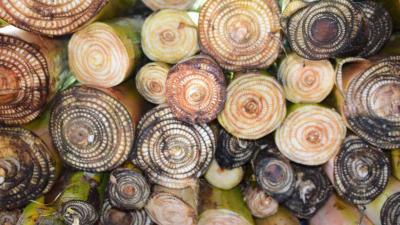

by Alexa Erickson, Collective Evolution
When it comes to animal welfare, vegan leather is a big win, but its environmental impact has been heavily questioned, with many wondering which is worse for the planet — real or faux leather. Though every manufactured product comes with an environmental cost, there are many aspects involved in every phase of the production of both leather and faux leather that must be considered.
The meat and leather industries are incredibly connected, and it’s been well-documented that animal agriculture wreaks havoc on the environment. In fact, the UN reports that the industry creates 18% of greenhouse gas emissions, which is more than all transport emissions combined.
When it comes to leather specifically, deforestation, water drainage, and tanning are all huge concerns. Leather tanning, in fact, is one of the top 10 pollution problems in the world, with hides being tanned using a slew of dangerous chemicals that generate gallons of waste with a high concentration of pollutants.
Vegan leather is usually made by bonding a plastic coating with a fabric backing. The majority of vegan leather made today uses polyurethane (PU), which comes from fossil fuels, and remains toxic. Major innovations in textile technology have been in the works to fix this, however.
In recent news, a more ethical and eco-friendly alternative has come to light: banana fiber. Kosrae, Micronesia-based startup Green Banana Paper, took advantage of banana tree waste, upcycling the material into fashionable and durable vegan leather wallets. The company created a Kickstarter for the eco-friendly wallets in order to improve the lives of local famers.
The trees bananas grow on require a lot of work, despite the fruit itself coming ready to eat. Considering there are about 200,000 banana trees spread out among the island, local farmers have to cut down the plant annually after harvesting to ensure fruit production.
An incredible amount of banana fiber waste is left on the ground to biodegrade. With this in mind, New England native Matt Simpson, the founder of Green Banana Paper, decided to take advantage of this abundant “trash” and turn it into a newfound treasure. The end result is a strong and water-resistant wallet boasting designs inspired by Micronesia’s people, coconut palms, and ocean life.
“Green Banana Paper wallets are not only ecofriendly; they are helping to provide a living wage to Kosraean families,” explains the company. “Matt hopes to continue to scale up production, and get even more people on the island involved in this truly community-oriented business.”
The company’s Kickstarter seeks to raise enough funds that they can employ more people, as well as refine the quality of their products. As an incentive, anyone supporting the project will receive their own banana fiber wallet, which can be shipped around the world.
“The raw materials are purchased from over 75 local farmers in the community – providing a new way to earn extra income,” the company says. “Making wallets from banana trees is labor intensive. The making of each wallet involves 12 or more people. By purchasing our wallets, our customers are helping provide creative and fulfilling work to members of our community.”

